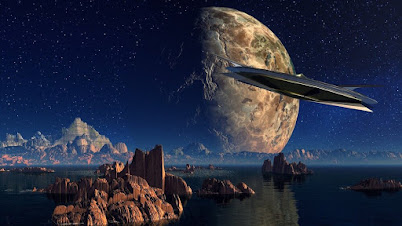Writing Sci-Fi Part 3
Vladimir Nabokov, writer of Lolita, when depicted the novel-creative cycle thusly: "The author's responsibility is to get the principle character up a tree, and afterward once they are up there, toss rocks at them."
There is a lot of truth in this succinct little explanation. Indeed, we've covered this idea as of now. Your primary person needs to confront extraordinary difficulties over the span of your story. In the event that they do — and in the event that you've worked really hard—perusers will stay immersed in the story straight all the way to the finish.
In the event that you don't throw allegorical "rocks" at your characters, the peruser will lose interest. Keep in mind: If your hero is making some fine memories, the peruser isn't.
I've seen the "tree and shakes" allegory applied to the three-act design of plays, a construction that can likewise be utilized when composing a sci-fi novel:
• Act one: Exposition and affecting occurrence (character fires up the tree)
• Act two: Rising activity and peak (you toss rocks at the person)
• Act three: Falling activity and goal (character gets down from the tree)
This is a misrepresentation, yet you get the thought. Numerous works of fiction follow this exact same model.
To compose a decent sci-fi novel, you need to push your characters like they've never been pushed. You need to take them outside of their usual ranges of familiarity. The difficulties they face in the story (counting the danger from the opponent) must be a vital crossroads in their lives. It must be huge.
As perusers, we will in general recollect the peak and finishing of a novel long subsequent to completing it. These things impact us, yet for various reasons.
We recollect the closure for primary reasons. It's the last thing we read. We recall the peak, since that is the place where the firecrackers go off. It's the most interesting piece of the story, thus it stays with us long after.
However, what is a peak, precisely? Here a few word reference sections that characterize it well:
• Merriam-Webster: the mark of most noteworthy sensational pressure or a significant defining moment in the activity.
• Cambridge Dictionary: the most significant or invigorating part in the improvement of a story or circumstance, which ordinarily occurs close to the end.
The peak is a significant piece of any novel. Without one, stories will in general appear to be level. Truth be told, that is by and large what a peak does — it keeps your story from being level. It's anything but a pinnacle or summit to run after, as you're composing your novel. That applies to all classifications of fiction.
Yet, I would contend that a major peak is significantly more significant for sci-fi essayists, and speculative fiction by and large. In a science fiction novel, you've effectively begun with a major thought. You've "wowed" us with your reality working, with your remarkable vision. To go up from that point — to arrive at the peak of the story — you need to climb pretty high. Higher than an essayist of scholarly fiction.
There are numerous approaches to structure a science fiction novel. Whatever technique you use, you ought to consistently have a highpoint of the activity — a finish when the entirety of the stuff hits the fan, significantly talking.
There are a few purposes behind this. Here are the two most significant ones: Readers anticipate it, and it makes the story more paramount.




Comments
Post a Comment